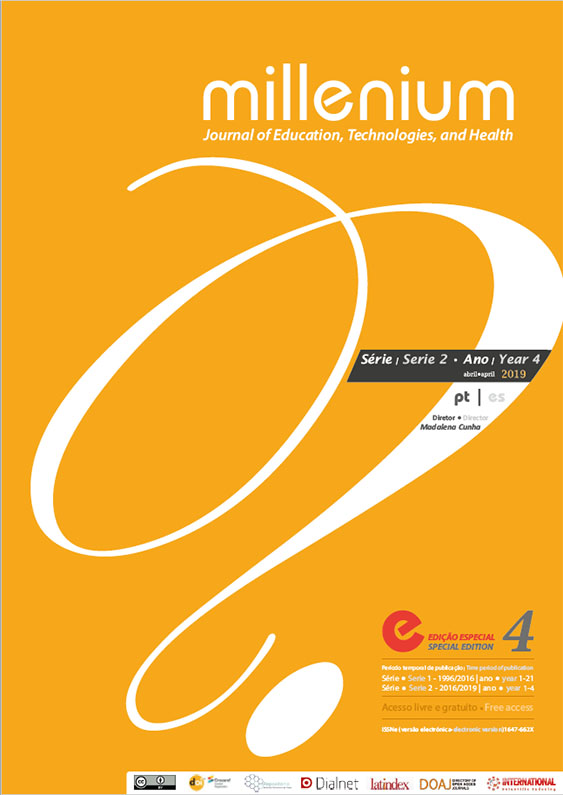Foreign languages and organizations: the perspective of communication professionals
DOI:
https://doi.org/10.29352/mill024e.15210Keywords:
foreign languages, organizational communication, communication professionals, national companies, international companiesAbstract
Introduction: At present, organizations have needs and face the challenges of communicating in a foreign language spoken or using digital means.
Objectives: To understand the role of foreign languages in the communication departments of national and international organizations. To analyze the diversity of languages used in the companies under study; To understand in what media, channels and actions foreign languages are most used; To assess the level of knowledge of languages. To understand the objectives of the use of languages from the perspective of communication professionals.
Methodos: The study is based on a quantitative methodology, using as a method of data collection the application of questionnaire by survey to professionals of the communication departments of national and international companies.
Results: Communication professionals use mostly English language in companies, namely in digital communication (social networks, website and newsletter), telephone conversations, meetings, events and business.
Conclusions: The study brings contributions to the academia and to the business world, in that it allows to gain the skills and profiles of the fundamental communication professionals to face the competitiveness of the current organizational world.
Downloads
References
Baker, K. A. (2002). Organizational communication. Retrieved June, 7, 2009.
Gonçalves, G. (2010). Introdução à teoria das Relações públicas. Porto: Porto Editora.
Grunig, J. E., & Hunt, T. (1984). Managing public relations. New York: Holt, Rinehart and Winston New York.
Heath, R. L. (1992). The wrangle in the marketplace: A rhetorical perspective of public relations. In Toth, E.L.&
Heath, R.L., Rhetorical and critical approaches to public relations (pp. 17–36). New Jersey: Lawrence Erlbaum Associates.
Kankaanranta, M., & Salminen, L. L. (2013). " What language does global business speak?"-The concept and development of BELF. Ibérica: Revista de la Asociación Europea de Lenguas para Fines Específicos (AELFE), (26), 17-34.
Kent, M. L. (2001). Managerial rhetoric as the metaphor for the World Wide Web. Critical Studies in Media Communication, 18(3), 359–375.
Kent, M. L. (2011). Public Relations Rhetoric: Criticism, Dialogue, and the Long Now. Management Communication Quarterly, 25(3), 550–559.
Kunsch, M. M. K. (2003). Planejamento de relações públicas na comunicação integrada. Summus editorial.
Kunsch, M. M. K. (2009). Relações públicas e comunicação organizacional: das práticas à institucionalização acadêmica. Organicom, 6(10-11), 49-56.
Marschan-Piekkari, R., Welch, D., & Welch, L. (1999). In the shadow: The impact of language on structure, power and communication in the multinational. International Business Review, 8(4), 421-440.
Oliveira Cardoso, O. (2006). Comunicação empresarial versus comunicação organizacional: novos desafios teóricos. Revista de Administração Pública, 40(6), 1123-1144.
Santos, M. P. (2012). Importância do domínio de línguas estrangeiras pelos profissionais de Secretariado Executivo para atuação no mercado de trabalho em tempos de globalização: uma abordagem crítico-reflexiva. Revista de Gestão e Secretariado, 3(1), 94-108.
Silva, V. L. T. (2004). Competência comunicativa em língua estrangeira (Que conceito é esse?). Revista Soletras, (8), 7-17.
Silverstone, R. (1999). Why study the media? Sage Publications Ltd.
Te''eni, D. (2001). A cognitive-affective model of organizational communication for designing IT. MIS quarterly, 25(2), 251-312.
Toth, E. L. (1992). The case for pluralistic studies of public relations: Rhetorical, critical, and systems perspectives. In Toth, E.L.& Heath, R.L., Rhetorical and critical approaches to public relations (pp. 3–16). New Jersey: Lawrence Erlbaum Associates.
Toth, E. L., & Heath, R. L. (1992). Rhetorical and critical approaches to Public Relations. Lawrence Erlbaum.
Vandermeeren, S. (2005). Foreign language need of business firms. In M. Long (Ed.), Second Language Needs Analysis (Cambridge Applied Linguistics, pp. 159-181). Cambridge: Cambridge University Press.
Downloads
Published
How to Cite
Issue
Section
License
Copyright (c) 2019 Millenium - Journal of Education, Technologies, and Health

This work is licensed under a Creative Commons Attribution 4.0 International License.
Authors who submit proposals for this journal agree to the following terms:
a) Articles are published under the Licença Creative Commons (CC BY 4.0), in full open-access, without any cost or fees of any kind to the author or the reader;
b) The authors retain copyright and grant the journal right of first publication, allowing the free sharing of work, provided it is correctly attributed the authorship and initial publication in this journal;
c) The authors are permitted to take on additional contracts separately for non-exclusive distribution of the version of the work published in this journal (eg, post it to an institutional repository or as a book), with an acknowledgment of its initial publication in this journal;
d) Authors are permitted and encouraged to publish and distribute their work online (eg, in institutional repositories or on their website) as it can lead to productive exchanges, as well as increase the impact and citation of published work
Documents required for submission
Article template (Editable format)





